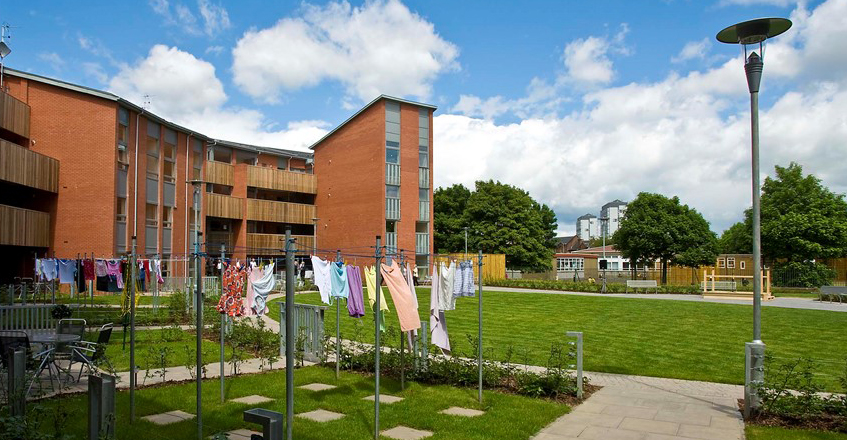The Co-operative Councils Innovation Network (CCIN) has released a set of case studies of councils working with local communities to build resilient neighbourhoods.
The network local authorities with a co-operative agenda is open to all councils, regardless of their political affiliation.
Case studies in its report include Bassetlaw District Council, which is working to enhance public participation in planning, with nine active neighbourhood plans and 15 under development. And it has launched the Neighbourhood Planning Marketplace, which brings together various groups to showcase their work and exchange information and experience.
In Cardiff the council runs Cardiff Commitment, a youth engagement and progression strategy to ensure that young people aged 16-24 secure the right job. It aims to explore the range of opportunities on offer across the city, from in-school support such as work experience or mentoring, careers advice and guidance, apprenticeships and traineeships, to help them find work. The approach has reduced the number of young people not in education, employment or training from 4.5% in 2015 to 3% in 2016 with a provisional figure of 1.7% in 2017.
Croydon Council is co-operating with communities to generate more affordable housing and make use of government funding for community-led housing (CLH). In January 2018 the council published a report which argues that CLH should be added to the strategic mix to increase the supply of homes that local people can afford. The report says CLH can help local authorities achieve their housing targets and bring resources into the area.
Last year, the Ministry of Housing, Communities and Local Government announced a £240m funding programme over four years for local community groups, registered providers and local authorities to support CLH. The report includes 12 detailed local authority case studies from England, Wales and Scotland.
In Glasgow the city council manages the government’s affordable housing supply programme, funding community-based housing associations and co-ops (CCHAs), which then build new homes and contribute to the regeneration of the city. Working together, GCC, the Scottish government, and New Gorbals Housing Association (NGHA), a CCHA controlled by an elected volunteer management committee of Gorbals residents, have delivered 201 social rent and 39 mid-market rent homes for NGHA, as well as 69 homes for sale.

The council is also providing development funding for new-build housing of £70m a year and investing £14m alongside the Scottish government’s £20m for the acquisition of 350 mostly private-rented homes by Govanhill Housing Association, a community-controlled and owned organisation.
In Knowsley the council is adopting a co-operative approach under the slogan “Better together”, encouraging different local actors and businesses to collaborate. It has also launched a £1m fund to encourage the development of sustainable activity to deliver on key priorities, through small grants.
Health is another key concern for some councils. Lambeth Council has helped to set up Lambeth Living Well Collaborative – a platform for a partnership of service users, GPs, providers and commissioners dedicated to transforming the borough mental health care system. The platform acts as a community of providers, support agencies, statutory organisations and people who help citizens of Lambeth to live well.
The network supports 500 people a month and has seen a 32% reduction in referrals to secondary care since the introduction of the living well hub and 75% reduction in waiting times for support in secondary care.
Lambeth Clinical Commissioning Group (CCG) and the council are now working on a Living Well Network Alliance which will encompass most of the area’s NHS and social spend on adults with mental health problems (£66m pa). From July, this intensive partnership will see commissioners and providers oversee continued transformation in the way adult mental health services are delivered, over a 7-10 year contractual term
Preston City Council has collaborated with six local anchors institutions in the city, the largest purchasers of goods and services in the area, which it sees as community wealth builders. More than £112m of their total £616m spend (18.2%) went to Preston-based businesses, an increase of more than £74m.
Sharon Taylor, leader of Stevenage Borough Council and chair of CCIN, said: “Few councils take the brave decision to tackle increasing austerity and challenges on their own front door step by investing to save – investing in communities and the power of people.
“Co-operative councils do just that and demonstrate this in their innovative approaches to service delivery. Our latest case studies pack features 38 case studies from across the UK, demonstrating some of the many ways co-operative councils are working with local people to build strong and resilient neighbourhoods. We have over a 150 case studies on our website.”